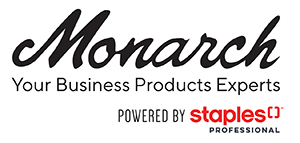Copy paper is one of the most essential supplies for any office, home, or school. It is used for...
Just How Green Is Your Paper?
Article by R. Parker |

If your company is trying to do its part to go “green”, one area, in particular, you might want to focus your efforts on is paper. Considering how much paper the average office goes through each year, it’s important to recognize that some paper products are greener than others, and then choose your office paper accordingly.
Exactly how green is the paper that’s currently used in your office?Pre-Consumer vs. Post Consumer Content
Beyond the percentage of recycled content in the paper you are buying, it’s important to understand the difference between pre-consumer and post-consumer recycled products.
Pre-consumer content has not been used previously for its intended purpose and is typically made with scraps or waste from paper mills.
Post-consumer content, on the other hand, has been used previously. It has served its intended use in the consumer market, then was recycled and reused in another product, instead of being disposed of and ending up in a landfill. Post-consumer content is much more beneficial to the environment. The greenest paper will be labeled with the highest percentage of post-consumer recycled content.
The paper sold by your local Basics® Dealer containing post-consumer recycled content is marked with our EPP logo.
Chlorine
Paper is made white by being bleached with chlorine, a process that is harmful to both us and the environment. It produces hazardous chemicals known as dioxins (which studies have shown to be highly carcinogenic) and other toxic pollutants.
There are, however, some bleaching processes that are less harmful than others. The two most benign are Processed Chlorine Free (PCF) and Total Chlorine Free (TCF), both of which involve the use of no chlorine or chlorine derivatives, and have the smallest impact on the environment. To ensure you are using the greenest paper possible, look for recycled paper bleached by PCF or TCF processes.
Alternative Fibers
While the use of alternative fibers such as hemp for the paper might seem like a good idea, in theory, the production of hemp still requires the use of land, water, fertilizer, etc. Not to mention the fact that it actually counteracts recycling, removing some of the markets for recycled paper. The more environmentally-friendly and thus greenest option is opting for recycled paper over that made from alternative fibers.
FSC ®Certification
If you have made a commitment to go green in the office but are reluctant to use recycled paper, a viable alternative is FSC® certified paper. Although it is not recycled, it has been responsibly harvested from what the Forest Stewardship Council has declared a well-managed forest, with less of a harmful impact on the ecosystem.
The paper sold by your local Basics® Dealer that has been FSC® Certified is always represented by the FSC® logo.
There are a variety of factors that determine exactly how eco-friendly paper is. But once you understand these factors and how they relate to the environment, your office can confidently say your paper is the greenest of the green!
Learn more about FSC Certification Below!
Source: https://basics.com/blog/2020/01/27/just-how-green-is-your-paper/


.png?height=200&name=Blog%20Posts%20Pictures%20resizing%20(4).png)